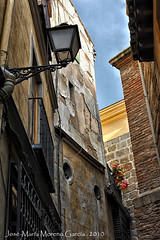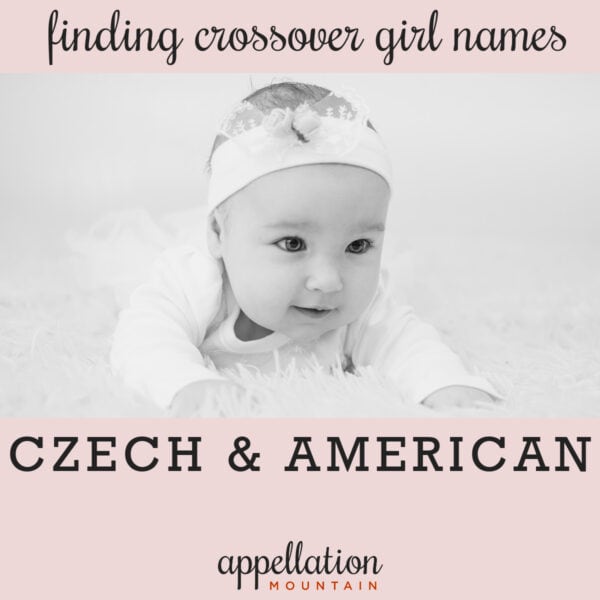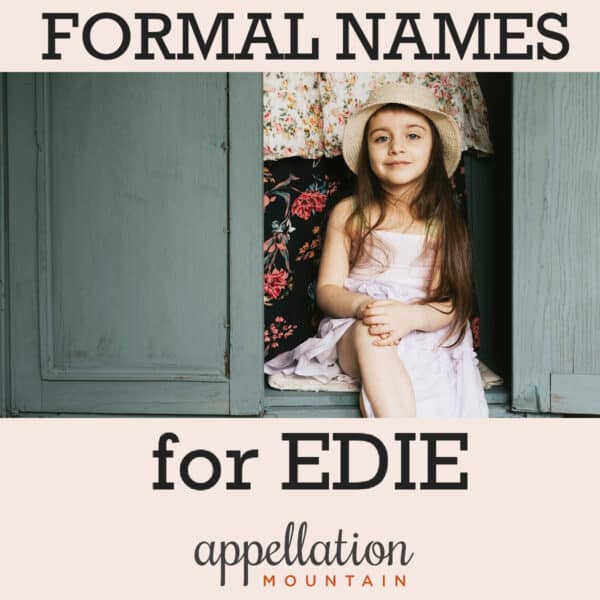Today’s choice was worn by an obscure eleventh century saint, but would sound right at home on the playground with Isabella and Matilda.
Thanks to Ko for suggesting Casilda as our Baby Name of the Day.
Girls’ names have range. There are the short, nickname-proof names; the gender neutral surnames; the perky diminutives. But plenty of parents crave an elaborate, feminine option, pushing choices like Olivia in the US Top Ten. Many of the names are frilly, but they’re not really lightweight – think of Gabriella, Alexandra, Angelina, and Madeline.
Casilda fits right in. She’s lovely and flowing, just right on a ballerina. But she’s not out-of-place on a district attorney.
Cass names have had their day in the sun:
- Cassandra appeared in the Top 100 in 1980s and 1990s, and now ranks #328;
- Cassie has appeared as a given name, too, but at #958, she’s really falling;
- Cowgirl Cassidy now ranks #248.
A handful of K- spellings have ranked, too, but they’re mostly fading.
Casilda is a relatively obscure Spanish saint. Her name isn’t related to Cassandra or Cassidy (they’re Greek and Irish, respectively, and unrelated to each other, too). Instead, you’ll sometimes find her meaning related to the word casa – house. But that seems less than likely. Instead, I like Nancy’s theory. She links Casilda to all of those Germanic -ilda names: Romilda, Clotilde, Brunhild, Gunhild. Germanic elements appear in plenty of names that are forgotten in Germany, but persist elsewhere in Europe. The Visigoths ruled the Iberian peninsula until the Moors invaded in the eighth century.
It’s also possible that Casilda has Arabic origins, in which case I’m without a theory.
But this does bring us to the saint’s story. Casilda, it is said, was the daughter of Muslim king of Toledo. Toledo – a walled city on a hill – was the capital of the Visigoths’ domain, and served the same function for the Moors. I’m not sure if I can describe the religious climate during Casilda’s life. Much of Toledo’s history is characterized by relatively peaceful coexistence between Christians, Jews, and Muslims, though there were also periods of persecution.
Let’s say this: Casilda tended to Christian prisoners, smuggling bread to the unfortunate. When she was stopped by soldiers, legend has it, the bread miraculously changed to flowers. Whatever the soldiers – or dear dad – thought of the episode, Casilda survived into adulthood, and when she fell ill, traveled to a Christian shrine. The cure took, and when she recovered, she was baptized a Christian and lived a long life.
At least two places bear the name, in Argentina and Cuba. The Argentine city is named after the mother of the Spanish merchant who helped establish the settlement in the nineteenth century. There’s also a park in Bilbao, Spain named after a donor called Casilda who gave the land.
A handful of other references include:
- Gilbert and Sullivan used the name for a character in The Gondoliers. The play is set in Venice, but Casilda’s family is from Spain;
- Daniel Auber’s nineteenth century opera La part du diable gives the name to his heroine, the virtuous sister of the hero;
- There’s a character on the Mexican telenovela Amarte es mi Pecado by the name, too.
If you’re looking for an alternative to Matilda, a rare saint’s name that doesn’t end with a gory death, or possibly just an attractive rarity for a daughter, Casilda is an attractive option.





I really like Casilda, the more I think about it. It’s definitely familiar sounding, with its similarity to Cassandra and Matilda, but also unusual– I’ve never heard of a real-life Casilda. The name seems vaguely Harry Potter-ish to me– maybe because of the similarity to Romilda and Mafalda? Now that I think about it, it might be time for a resurge of -lda ending names. There are a lot of nice, underused ones.
Interesting, lovely name. I thought about her overnight and decided that I do like her, but not enough to ever use her. Romilda will always be my favorite -ilda name. I’d love to meet a little Casilda though!
She’s pretty, but she can’t replace my love for Cassandra. Silda would make a lovely nickname in my opinion.
There were some interesting comments on Nancy’s thread, including one quoting a book saying that her Arabic name was Casida!
It’s certainly a fascinating name; not sure how I feel about it yet ….
Ah, interesting! Probably Qasida then!
When I saw today’s NOTD my heart leap, because there’s a painting of the Saint Casilda that I absolutely adore. https://tinyurl.com/miracleofcasilda
Even though she’s a Spanish saint, the -ilda ending seems fitting with my German surname. I do wonder about is the pronunciation — I’ve been pronouncing it like Clotilda (kah-SIL-dah), but the Cassie comments make me wonder if the first syllable should be KASS. With a name this rare it’s not a big deal, but I’m curious… any Spanish speakers here?
You were right with ‘kah-SIL-dah’, although the sil is pronounced more like SEEL.
Thanks!
I like Casilda, and have always liked Cassie. I mentioned her myself when I did an article about names ending in -ilda not that long ago. I’m pretty certain the name has to be Arabic if there’s any truth in the story about the saint. I suspect the -ilda ending arose as a result of the name being ‘Spanishified’ when it became Christian — there are a lot of Spanish -ilda names because of the Visigoths. There are a number of Arabic names which might be behind it, such as Kashida, Kashud, Kasool and Qasida. Whether any of these were in use in the medieval period I haven’t had time to research, and I daresay there are other options too!
I’ve never heard Qasida as a given name before, but it makes sense that it’s related to Casilda. I do know that a Qasida is a form of poetry, and that the Qasida Burdah is one of the most famous (Sunni) Muslim poems.
Side note: Hildebranda is my favorite -ilde/ilda name, from Love in the Time of Cholera.
I adore Casilda! It’s both lacy and fiery, brocaded and brassy in a hair-let-down-and-blowing-in-the-wind way.
I’m not sure what to make of this name, she’s nice enough, I just can’t see myself liking her enough to use her. I do, however, rather like Romilda and Matilda. The nickname Cassie is lovely, though.
The Cass- sound has no appeal to me as a feminine sound. Casilda should appeal to me because of her vaguely lacy feel but doesn’t. I’ll keep Maud in my back pocket, leave Casilda for someone else.
I can’t think of Casilda without thinking of Hilda. The “H” is silent in Spanish, I know a dad who called his daughter Hilda “Hilda Casilda” as a pet name. I’ve yet to meet one, and think she’d be great for someone looking for something uncommon yet feminine.